
Living with diabetes requires thoughtful consideration of your diet, but that doesn’t mean you need to completely remove fruits from your meals. Various fruits can play a helpful role in maintaining healthy blood sugar levels when enjoyed in moderation. Fruits are a great addition to any meal plan, providing a wealth of vitamins, minerals, and fiber. They not only taste delicious but also offer numerous health benefits. Here are some fruits that are suitable for a diabetes-friendly diet, along with some helpful tips on how to include them in your meals.
1. Berries
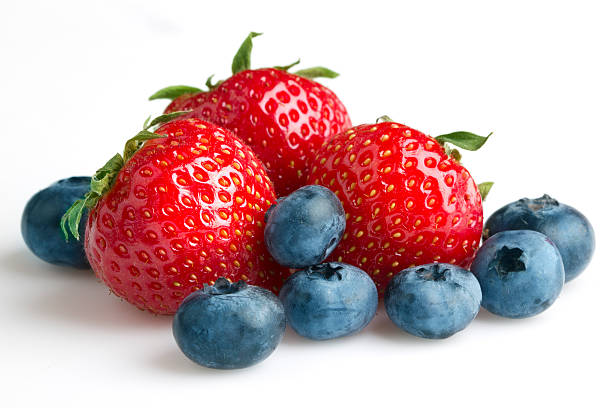
Berries are an excellent option for individuals with diabetes due to their low calorie and carbohydrate content, as well as their abundance of fiber and antioxidants. Here are some specific types of berries and the advantages they offer:
- Strawberries: These delicious fruits are a fantastic choice for a snack due to their low calorie and carbohydrate content. Additionally, they contain a generous amount of fiber and antioxidants, which play a crucial role in safeguarding cells against harm and diminishing inflammation.
- Blueberries: These little berries are bursting with essential vitamins and powerful antioxidants. Research has demonstrated their ability to enhance insulin sensitivity, a critical factor in effectively managing blood sugar levels.
- Raspberries: These delicious fruits are packed with dietary fiber and have a low sugar content. Their abundant fiber content aids in the regulation of blood glucose levels by slowing down the absorption of sugar into the bloodstream.
2. Citrus Fruits
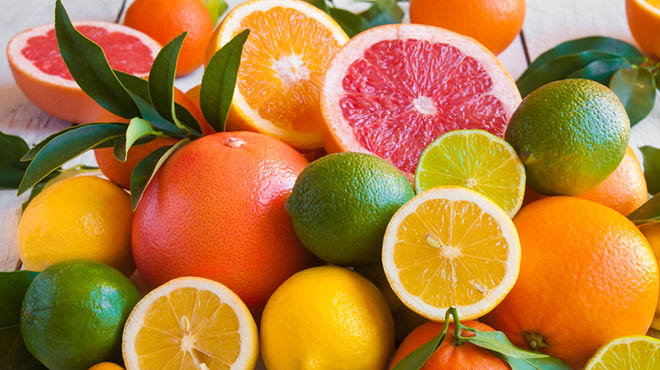
Adding citrus fruits to your diet can be beneficial for individuals managing diabetes. They contain a wealth of vitamins, especially vitamin C, and have a low glycemic index, which prevents sudden increases in blood sugar levels. Here are some citrus fruits and the advantages they offer:
- Oranges: Oranges are rich in vitamin C, which plays a crucial role in maintaining good health and supporting the immune system. In addition to their nutritional benefits, they also contribute to blood sugar control. It is crucial to be aware of portion sizes, as oranges do contain natural sugars.
- Grapefruit: Enjoy the benefits of grapefruit, which has a low glycemic index and can contribute to enhancing insulin sensitivity. Consuming grapefruit can contribute to a sense of fullness, aiding in the prevention of excessive eating.
- Lemons: Lemons bring a burst of flavor to dishes without any extra calories or sugar. Lemons have the ability to slow down the process of converting starches into sugar, which can help in maintaining steady blood sugar levels.
3. Apples
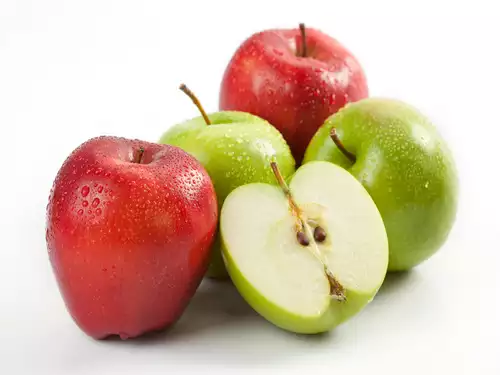
Apples contain a good amount of fiber, especially when consumed with the skin. This can aid in slowing down the release of sugar into the bloodstream. They are also a great source of vitamin C. Apples are a great choice for a snack if you’re looking to manage your blood sugar levels.
4. Pears
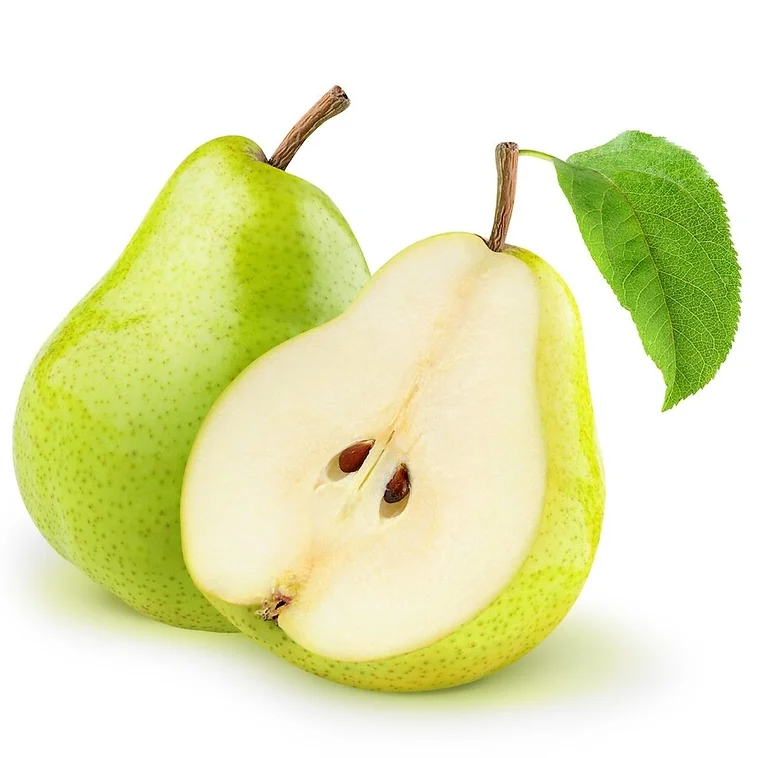
Pears are packed with fiber and essential vitamins, making them a great addition to your diet for promoting stable blood glucose levels. Eating them with the skin on can provide additional benefits. Pears are known for their low glycemic index and their ability to keep you feeling full for longer periods of time. This can be beneficial for managing your weight.
5. Cherries
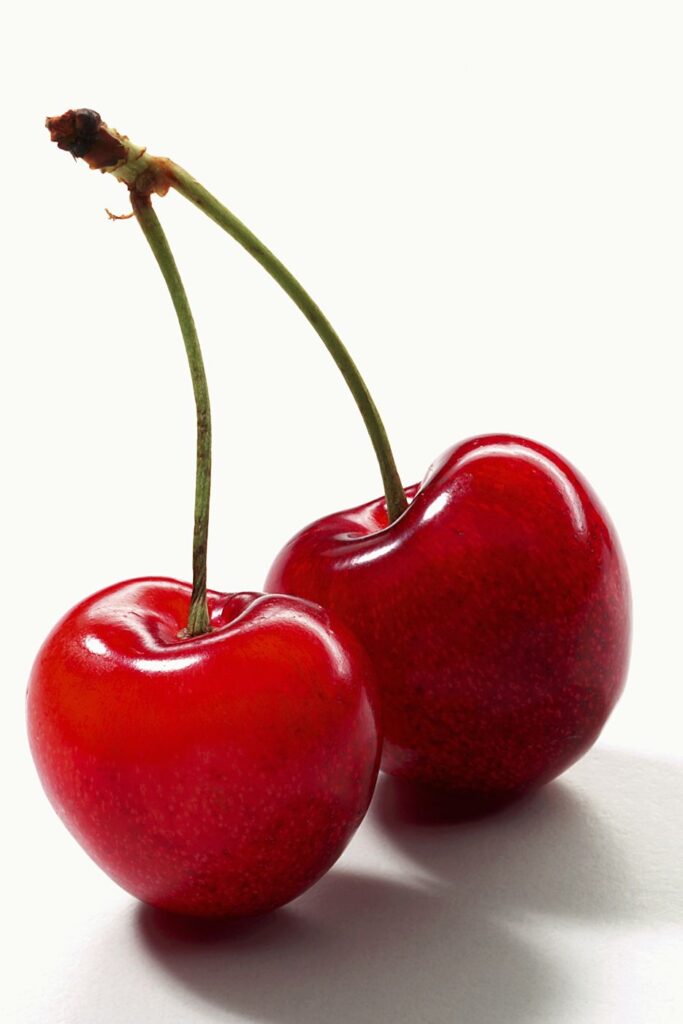
Cherries are rich in anthocyanins, compounds that have the potential to enhance insulin production and thus contribute to the reduction of blood sugar levels. Additionally, they possess anti-inflammatory properties and boast a high antioxidant content. Cherries are an excellent fruit option for individuals with diabetes due to their low glycemic index.
6. Peaches
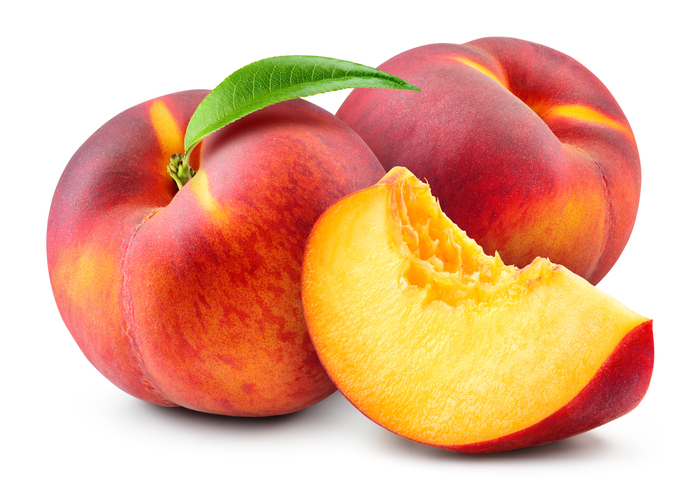
Peaches are a delightful fruit that is packed with essential vitamins, minerals, and fiber. When consumed in moderation, peaches can be a nutritious option for individuals managing diabetes. They offer vital nutrients without causing major fluctuations in blood sugar levels.
7. Plums
Plums are beneficial for maintaining stable blood sugar levels due to their low glycemic index. Additionally, they contain a wealth of valuable nutrients like vitamin C and K, fiber, and antioxidants. Consuming plums can enhance digestion and offer a delightful indulgence without causing a notable effect on blood sugar levels.
8. Kiwi
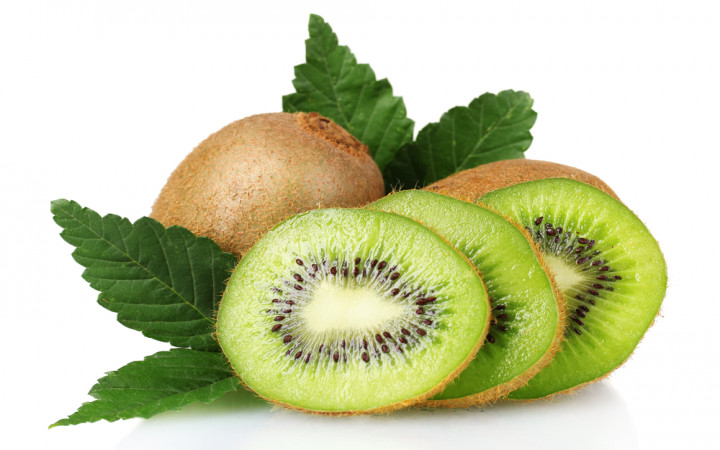
Kiwi is packed with essential nutrients like vitamin C, fiber, and potassium, which have been shown to help maintain healthy blood sugar levels. Kiwi is a great option for individuals with diabetes due to its fiber content, which aids in slowing down sugar absorption. In addition, kiwi is known for its hydrating properties and can be a delightful and invigorating snack.
Suggestions for Utilizing Fruits into a Diabetes Meal Plan
When it comes to managing diabetes, it’s important to approach the inclusion of fruits in your diet with caution and mindfulness. Here are some helpful suggestions for incorporating fruits into a nutritious and well-rounded diet:
- Balance: Opt for smaller portion sizes to effectively manage your carbohydrate intake. A typical serving of fruit contains around 15 grams of carbohydrates. Some examples of a single serving size are a small apple, a cup of berries, or a small orange.
- Healthy and Nutritious: Opt for fresh or frozen fruits that are free from added sugars. Avoiding certain types of fruits can help regulate blood sugar levels more effectively.
- Balanced Consumption: Incorporate fruit into your daily routine by enjoying it at different times throughout the day. Consuming smaller servings of fruit on a regular basis can assist in stabilizing blood sugar levels.
- Pairing: Incorporate a variety of fruits alongside proteins or healthy fats to promote a more gradual absorption of sugars. As an alternative, you have the option of combining an apple with a small portion of nuts or incorporating berries into a bowl of Greek yogurt.
- Track Blood Sugar: Stay on top of your blood glucose levels to observe the impact of various fruits on your individual health. It’s important to be aware of how your body reacts to different foods in order to make informed decisions about your diet.
The Significance of a Well-Balanced Diet
Properly managing diabetes necessitates a well-rounded diet consisting of a wide range of nutritious foods. Although fruits are certainly beneficial for a well-balanced diet, it is equally essential to incorporate vegetables, whole grains, lean proteins, and healthy fats. Regular physical activity and, in some cases, medication are crucial for effectively managing diabetes.
It is always advisable to seek guidance from a healthcare professional or a registered dietitian before making any major adjustments to your diet. They have the expertise to assist you in developing a customized meal plan that caters to your specific nutritional requirements and aids in maintaining stable blood sugar levels.
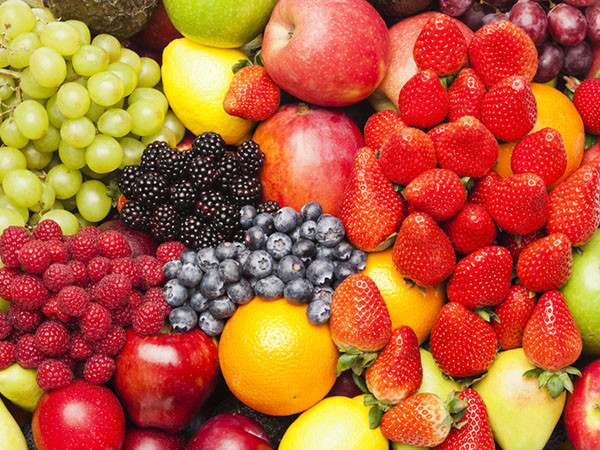
Living with diabetes doesn’t mean you have to eliminate fruits from your diet. There are numerous fruits that can be incorporated into a diet suitable for individuals with diabetes. These fruits offer vital vitamins, minerals, and fiber, all while assisting in the regulation of blood sugar levels. By making wise choices about the fruits you eat and consuming them in moderation, you can reap their benefits while maintaining your well-being.
It is important to keep in mind the following points:
- Berries: Strawberries, blueberries, and raspberries are a great addition to your diet. They are low in calories and packed with fiber and antioxidants, which can help you maintain healthy blood sugar levels.
- Citrus Fruits: Oranges, grapefruits, and lemons are known for their low glycemic index and high vitamin C content. These fruits can be beneficial in maintaining blood sugar levels.
- Apples: Apples are a great source of fiber, especially when eaten with the skin. This can help slow down the absorption of sugar and keep your blood glucose levels stable.
- Pears: Pears are rich in fiber and vitamins, which can help maintain steady blood sugar levels.
- Cherries: Cherries are packed with anthocyanins, which have been linked to potential benefits such as blood sugar reduction and improved insulin production.
- Peaches: Peaches are a nutritious option when consumed in moderation, as they contain vitamins A and C, potassium, and fiber.
- Plums: Plums are known for their low glycemic index and abundance of beneficial nutrients, which can help with blood sugar control.
- Kiwi: is a nutritious fruit that is rich in vitamin C, fiber, and potassium. It can be beneficial for regulating blood sugar levels.
By incorporating fruits into your diabetes meal plan, you can savor their delicious flavors and reap their nutritional benefits, all while effectively controlling your blood sugar levels. It is crucial to maintain a well-rounded diet, engage in consistent exercise, and seek guidance from medical professionals to effectively manage diabetes.